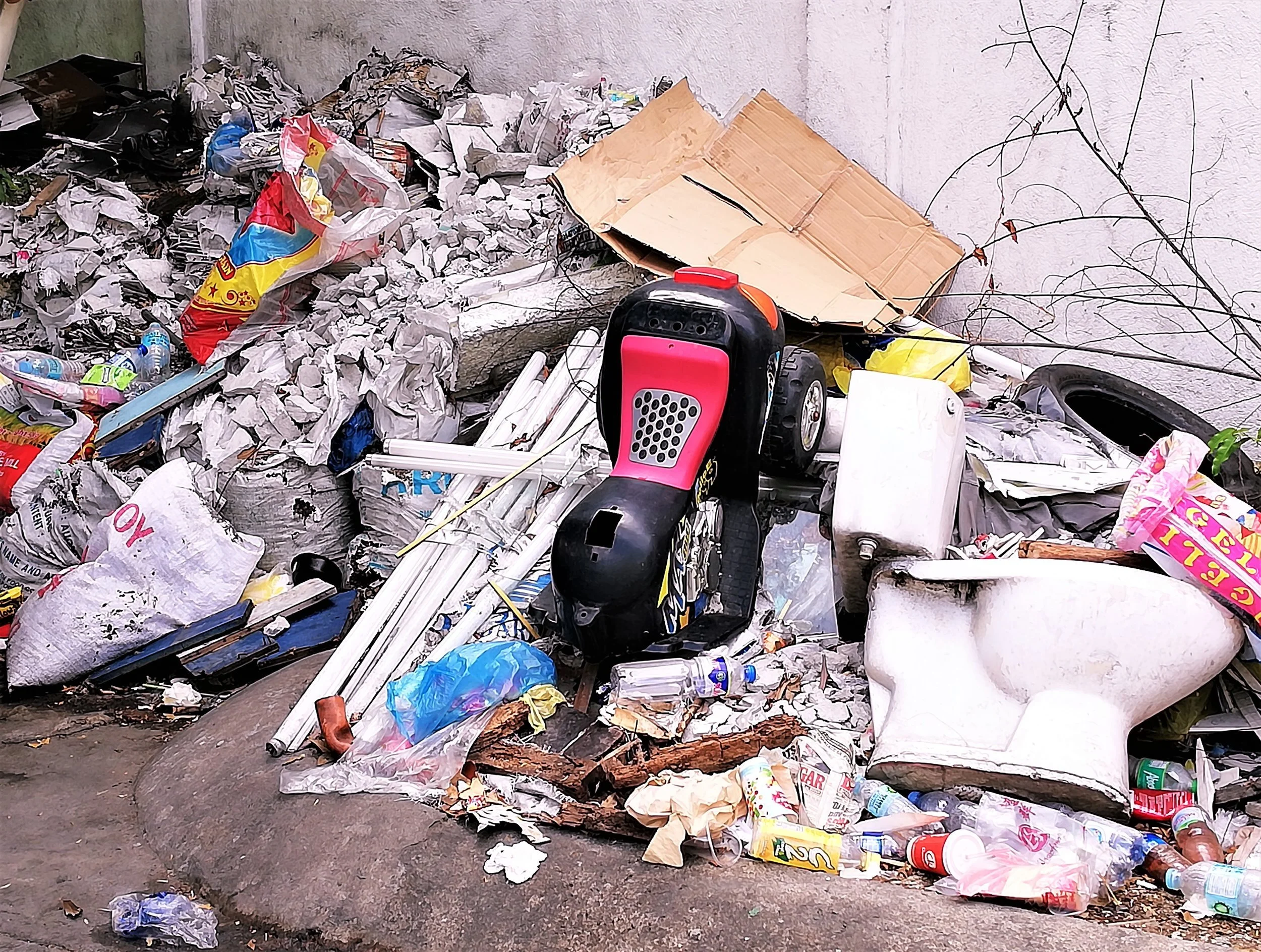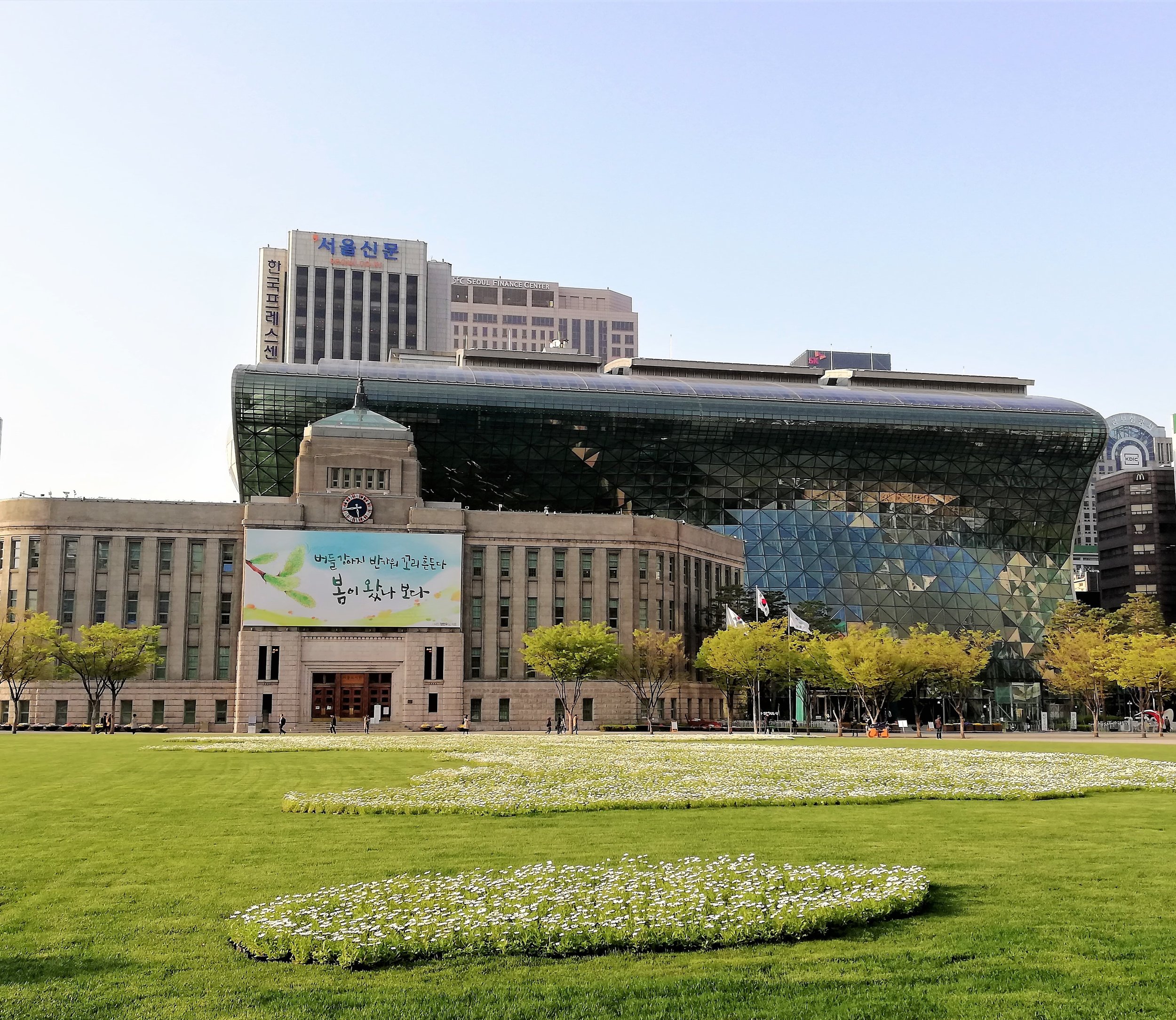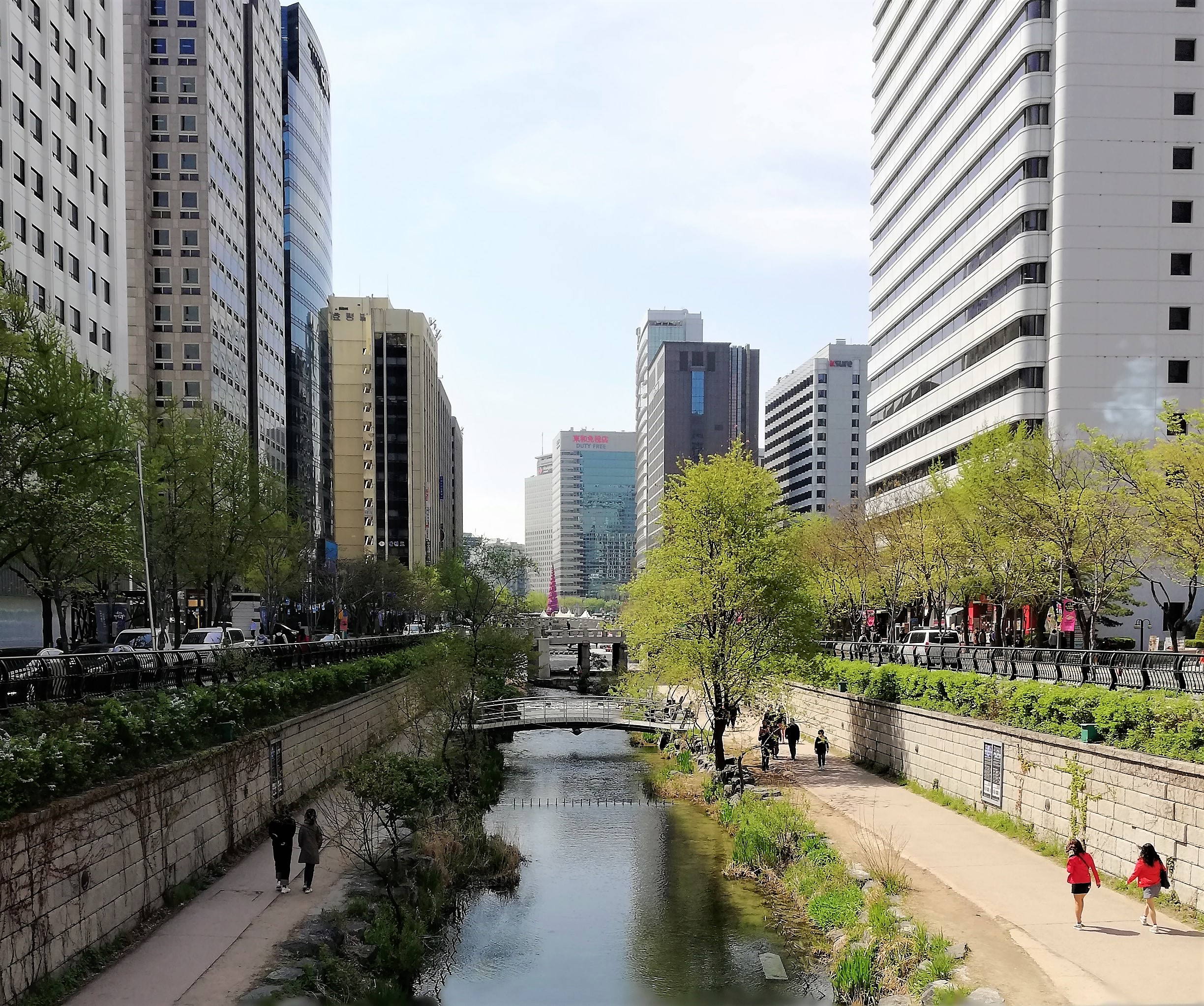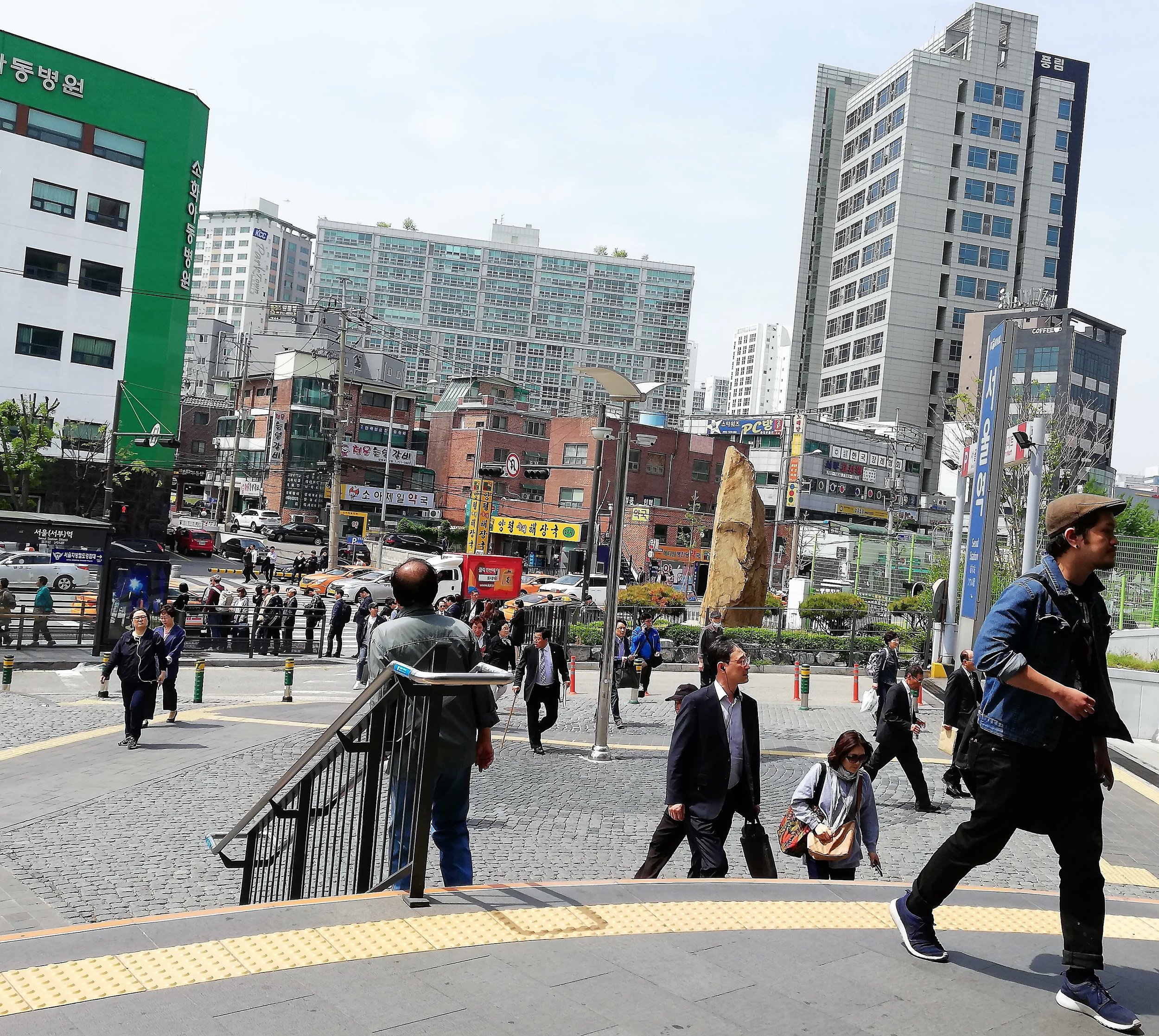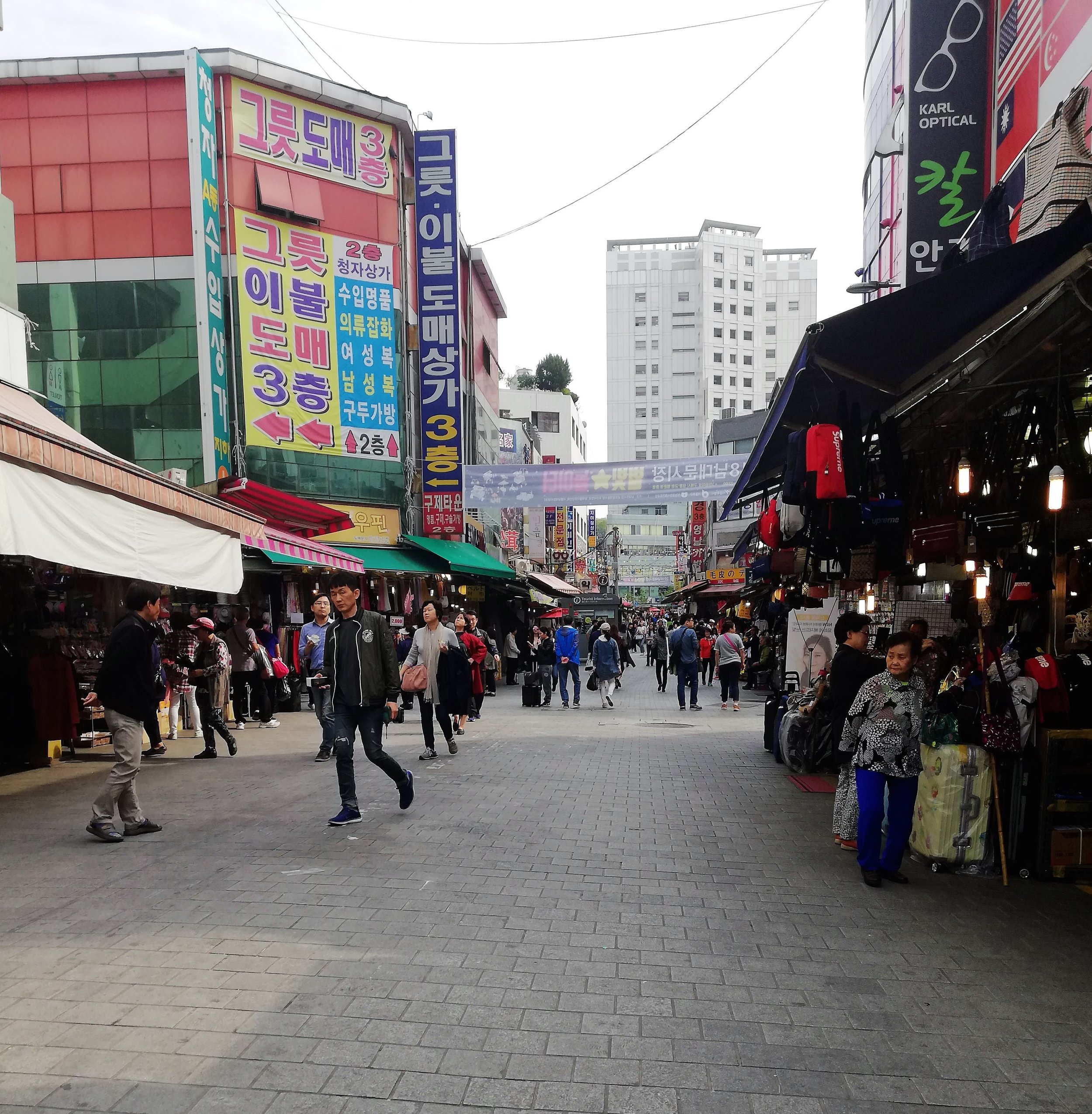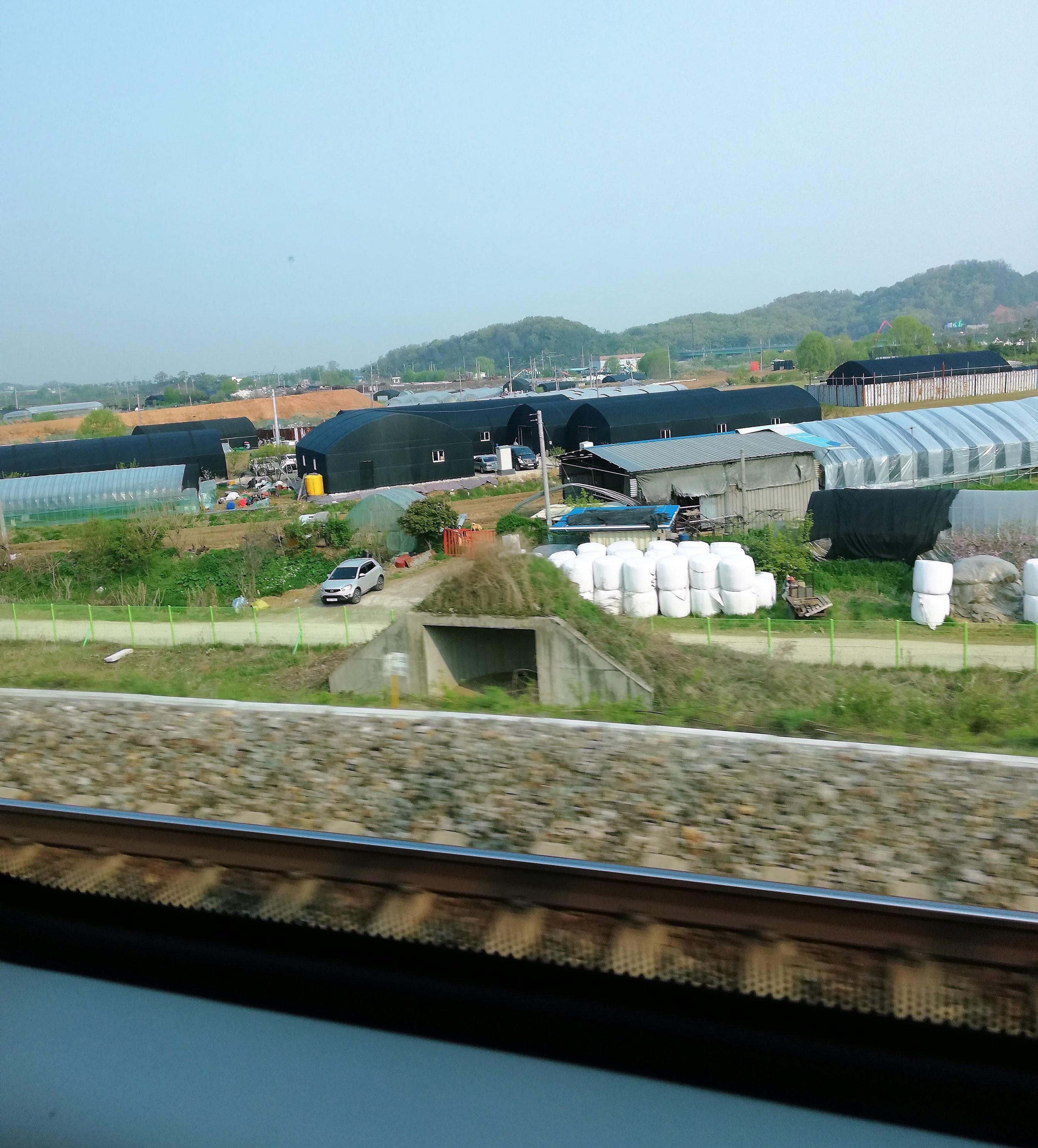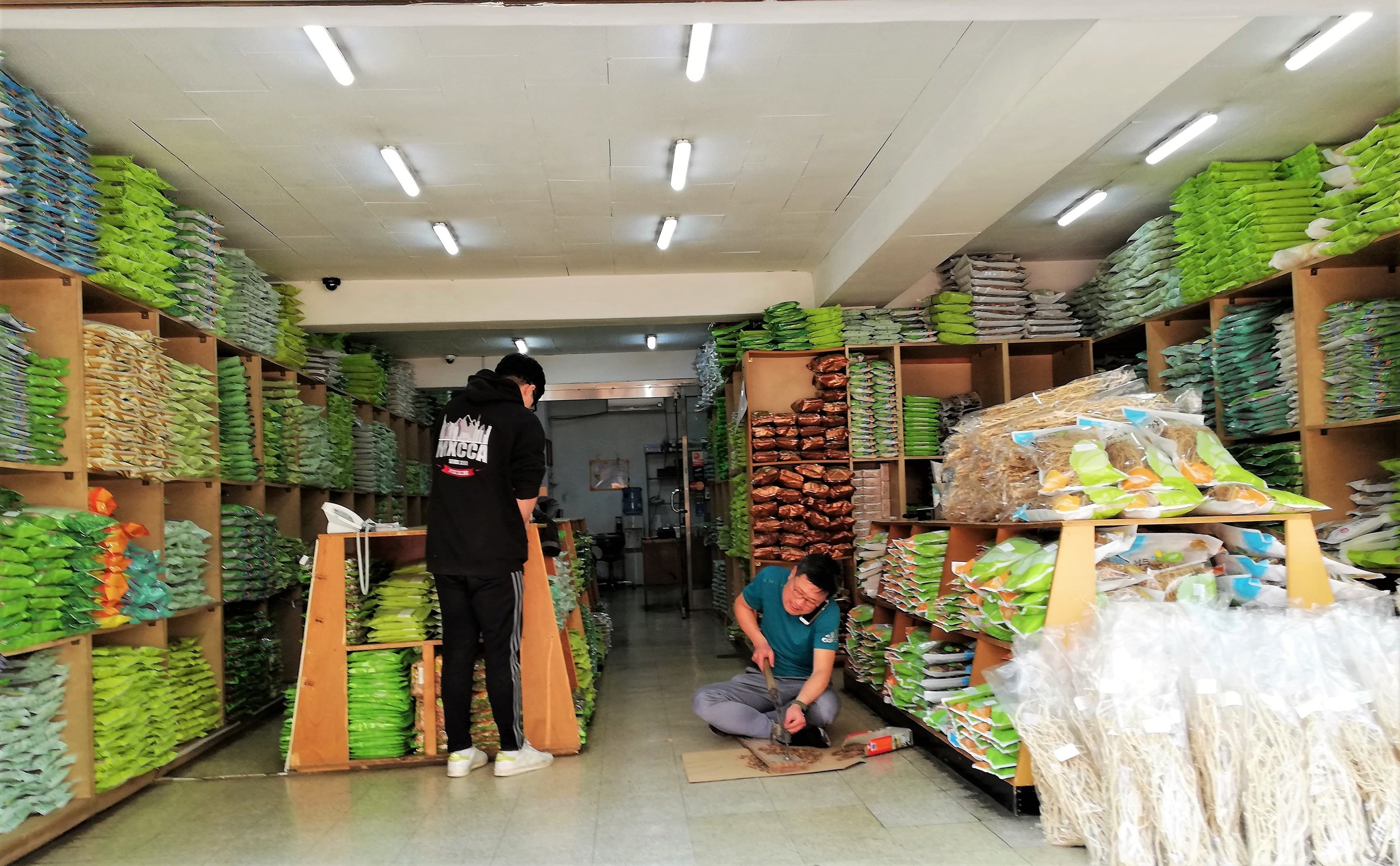Where is the Garbage?
by B. J. Stolbov
Seoul, South Korea, is the cleanest city I have ever seen. There is no garbage on the streets, in the gutters, on the sidewalks, in front of buildings, under windows, behind houses, in the alleyways, and, most noticeably, in parks and public places.
There are no cigarette butts (their cigarettes are very thin), no candy wrappers, no snack bags, no chewing gum globs, no spit blobs from either brown tobacco or red beetle nuts, no bottles and cans. Although the Koreans drink a lot of coffee, there are no coffee cups, or sugar packets, or stirrers on the streets. No litter – none! And, amazingly, I did not see any garbage trucks or garbage collectors.
In 12 days in Seoul, I could not be everywhere and see everything. On my one day outside of Seoul, I saw miles and miles of farms, greenhouses, and compost piles, but no garbage.
Where is the garbage? Where does it go? Do they not make garbage, or not as much garbage as other cities do? How do they get rid of it so efficiently? Is this something in the Korean culture? Cleanliness, both private and public, is clearly something that the Korean people consider important and valuable.
In the Philippines, where I have lived for the last eight years, Manila is one of the dirtiest cities I have ever seen. To be fair, Manila is cleaner than it was when I first saw it; the newer parts of the city, Makati, Global City, Green Hills, places for the rich people and foreign tourists are clean. Much of the rest of the city is dirty, disorganized, and neglected.
This is baffling because the Filipinos are some of the cleanest people I have ever met. Most shower every day, sometimes more often, their hair shampooed, conditioned, and combed, their bodies deodorized and perfumed, sometimes over-perfumed, their clothes neat and clean. Their homes are clean, neat, and orderly; everything is washed and put away.
Where is the garbage? The problem begins outside the house. There is often garbage in front of the house, behind the house, under windows, on the streets, in the gutters, at the corners, and most disturbing, their parks and public places are often used as garbage dumps.
San Francisco, where I lived for ten years, is usually clean. The rich neighborhoods and the tourist destinations are definitely clean, in particular Chinatown, Japan-town, and Korea-town. I lived over a Chinese restaurant and, while behind it was daily dirty, the front was always clean. Also, huge garbage trucks (actually, two garbage trucks: one for recyclables and one for regular garbage) rumbled through loudly at 4AM to pick up the garbage. S.F. has a unique advantage that helps keeps it clean, the frequent rains and the almost daily 4PM 40MPH gale-force winds off the ocean, washing and blowing the garbage away. Where does that garbage go?
Washington D.C., where I lived for ten years, is also clean. In particular, the main tourist destinations of the White House, the Capitol, the National Mall, and all the monuments and museums are clean - artificially clean. This is because keeping them clean is the job of thousands of government workers – your tax dollars at work! Other parts of DC, as we locals call it and most tourists never see, are ordinary, U.S. big city dirty and messy, but not too bad. But without multitudes of paid cleaners would the place be clean?
Why is one place clean and another place is garbage-strewn? The government can pass laws against public littering, the police can arrest people, and the judges can fine people or put them in jail, but no amount of legislation, police, judges, fines, and punishment can control all of the people all of the time. Laws can only try to prevent people from desecrating their own public places.
Why is there garbage? Carelessness? Laziness? Indifference? Negligence? Disinterest? Apathy? Lack of personal manners? Lack of individual self-control? Lack of discipline? Lax parental examples? Lack of civil education? Lack of community condemnation and lack of civic consequences? A belief that they are not responsible for their own garbage? A belief that it is someone else’s job to keep a place clean? That such a job is somehow below them? That cleaning public places is a disreputable job? Disdain? Pretentiousness? Arrogance? Ignorance? I do not know why.
I do believe that I know why a place is clean. People make garbage and people can, if they want to, keep their places clean. Why is there no garbage? Voluntary, individual, responsible, self-motivated, self-disciplined, sustained, and enduring respect for place.
Respect for place comes from the belief that we are not better or greater than the place where we live, where we are visiting, and where we are passing through, that the place where we live reflects our values and what is most important to us. I believe that respect for place comes from self-respect, or perhaps better, that our self-respect is a part of respect for any place. We are a part of every place and any place is a part of us.
For us travelers, visitors, and long-term residents in foreign lands, we can show our respect for a place, and for the people who live there, wherever we live and visit.
When B.J. Stolbov travels, he sometimes find answers; sometimes he finds more questions. During a recent trip to Korea, he found a few answers and many questions, thus, the title: "Where is the Garbage?" This is a serious piece about what is valuable and important in a culture and for its people.
